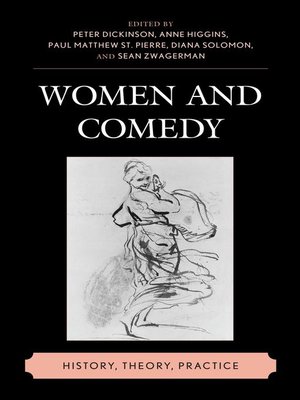
Sign up to save your library
With an OverDrive account, you can save your favorite libraries for at-a-glance information about availability. Find out more about OverDrive accounts.
Find this title in Libby, the library reading app by OverDrive.



Search for a digital library with this title
Title found at these libraries:
| Library Name | Distance |
|---|---|
| Loading... |
Women and Comedy: History, Theory, Practice presents the most current international scholarship on the complexity and subversive potential of women's comedic speech, literature, and performance. Earlier comedy theorists such as Freud and Bergson did not envision women as either the agents or audiences of comedy, only as its targets. Only more recently have scholarly studies of comedy begun to recognize and historicize women's contributions to—and political uses of—comedy. The essays collected here demonstrate the breadth of current scholarship on gender and comedy, spanning centuries of literature and a diversity of methodologies.
Through a reconsideration of literary, theatrical, and mass media texts from the Classical period to the present, Women and Comedy: History, Theory, Practice responds to the historical marginalization and/or trivialization of both women and comedy. The essays collected in this volume assert the importance of recognizing the role of women and comedy in order to understand these texts, their historical contexts, and their possibilities and limits as models for social engagement. In the spirit of comedy itself, these analyses allow for opportunities to challenge and reevaluate the theoretical approaches themselves.
Through a reconsideration of literary, theatrical, and mass media texts from the Classical period to the present, Women and Comedy: History, Theory, Practice responds to the historical marginalization and/or trivialization of both women and comedy. The essays collected in this volume assert the importance of recognizing the role of women and comedy in order to understand these texts, their historical contexts, and their possibilities and limits as models for social engagement. In the spirit of comedy itself, these analyses allow for opportunities to challenge and reevaluate the theoretical approaches themselves.







